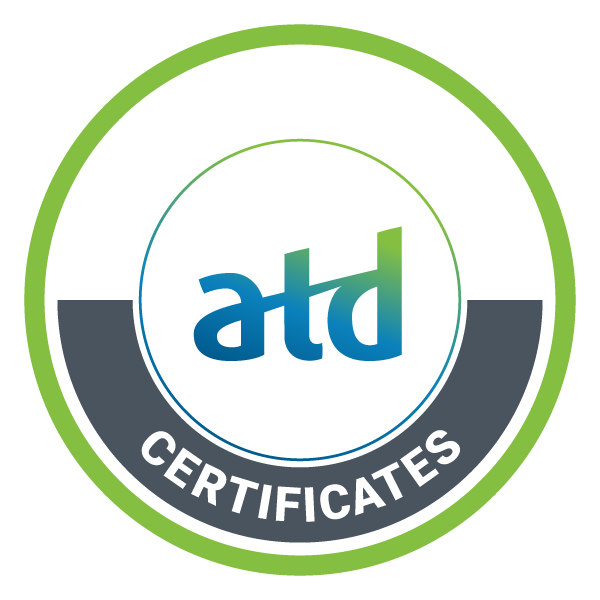Microlearning Certificate
Use bite-sized learning for employee development.
Close a knowledge or performance gap by curating, creating, and crowdsourcing bite-sized learning opportunities for your team—which they can access anytime and anywhere.
Face to face
Live Online
Team training
Microlearning Certificate: Course Info
Microlearning is an ever-evolving segment of the professional learning field. While organizations may define and implement it in different ways, one thing is clear—microlearning is here to stay. Bite-sized learning provides necessary support for busy employees who may not otherwise be able to participate in formal training on a given topic and can help organizations meet compliance needs and improve job performance. If you can address learning needs more quickly and efficiently, employees will be grateful—and so will their managers!
Get Started With the MILE Model
So, how do you get started? This certificate program guides you through the entire process of designing, creating, and promoting a microlearning program using the exclusive MIcroLEarning Design Model (MILE). You will define microlearning, review current trends, determine the appropriate contexts for its use, and learn how to turn videos, blogs, infographics, e-learning activities, and more into effective microlearning resources. You will analyze successful microlearning examples, including those created without a Learning Management System (LMS), taking away ideas and practical skills for your own future programs.
As part of the program, you will draft your own microlearning resource and get feedback from your peers and facilitator. You will leave the program ready to incorporate microlearning into your talent development initiatives.
Research-Backed Content: This microlearning design course is based on the Instructional Design Capability of the Talent Development Capability Model™. The concepts covered are reflected in the TDBok™ Guide, Talent Development Body of Knowledge, second edition, the definitive resource for the talent development profession.
Microlearning Certificate Brochure
Download the brochure to learn everything you need to know about this course.
Download Now

Format
Face-to-Face
Live Online
Team Training

Roles
Learning Technologist, Instructional Designer, Trainer/Facilitator

Capability Areas
Knowledge Management, Instructional Design, Technology Application

Level
Capable

Language(s)
Chinese
English

Credits
APTD 14
CPTD 14
CEU 1.4
HRCI 14
PDC 14

Recognition
ATD Certificate
Course Topics
FAQs
WHAT OUR PARTICIPANTS ARE SAYING
Facilitators
Dates and Locations
Time Zone: UTC
WHAT OUR PARTICIPANTS ARE SAYING
Testimonials
"The tools and activities used in this certificate program have prepared me to make microlearning a reality in my organization. It’s energizing to gain expertise in a skill that enables me to provide more relevant, practical learning for years to come. Bravo!"
"The two-day Microlearning Certificate program with ATD was a key inspiration to our new microlearning program and a practical way to start working with and learning from other L&D professionals."
"I chose ATD because it is a leader in Talent Development and is well respected in my organization."
Credits & Recognition
 ATD Certificate
ATD Certificate 14 Learning Hours
14 Learning Hours 1.4 CEUs
1.4 CEUs| Additional Credits | Type | Credits | Actions |
|---|---|---|---|
| APTD Credential | Professional Development Hours/Recertification Points | 14 | More Info |
| CPTD Credential | Professional Development Hours/Recertification Points | 14 | More Info |
| HR Certification Institute® | Recertification Credit Hours | 14 | More Info |
| Society for Human Resource Management | Professional Development Credits (PDCs) | 14 | More Info |
Have a Group to Train?
Want to purchase multiple seats or schedule a dedicated team training experience tailored to your organization’s needs? Fill out the form below to schedule a call with an ATD Enterprise Solutions Account Executive to learn more.
